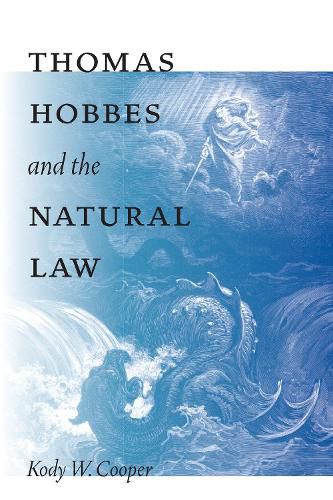Readings Newsletter
Become a Readings Member to make your shopping experience even easier.
Sign in or sign up for free!
You’re not far away from qualifying for FREE standard shipping within Australia
You’ve qualified for FREE standard shipping within Australia
The cart is loading…






Has Hobbesian moral and political theory been fundamentally misinterpreted by most of his readers? Since the criticism of John Bramhall, Hobbes has generally been regarded as advancing a moral and political theory that is antithetical to classical natural law theory. Kody Cooper challenges this traditional interpretation of Hobbes in Thomas Hobbes and the Natural Law. Hobbes affirms two essential theses of classical natural law theory: the capacity of practical reason to grasp intelligible goods or reasons for action and the legally binding character of the practical requirements essential to the pursuit of human flourishing. Hobbes’s novel contribution lies principally in his formulation of a thin theory of the good. This book seeks to prove that Hobbes has more in common with the Aristotelian-Thomistic tradition of natural law philosophy than has been recognized. According to Cooper, Hobbes affirms a realistic philosophy as well as biblical revelation as the ground of his philosophical-theological anthropology and his moral and civil science. In addition, Cooper contends that Hobbes’s thought, although transformative in important ways, also has important structural continuities with the Aristotelian-Thomistic tradition of practical reason, theology, social ontology, and law. What emerges from this study is a nuanced assessment of Hobbes’s place in the natural law tradition as a formulator of natural law liberalism. This book will appeal to political theorists and philosophers and be of particular interest to Hobbes scholars and natural law theorists.
$9.00 standard shipping within Australia
FREE standard shipping within Australia for orders over $100.00
Express & International shipping calculated at checkout
Has Hobbesian moral and political theory been fundamentally misinterpreted by most of his readers? Since the criticism of John Bramhall, Hobbes has generally been regarded as advancing a moral and political theory that is antithetical to classical natural law theory. Kody Cooper challenges this traditional interpretation of Hobbes in Thomas Hobbes and the Natural Law. Hobbes affirms two essential theses of classical natural law theory: the capacity of practical reason to grasp intelligible goods or reasons for action and the legally binding character of the practical requirements essential to the pursuit of human flourishing. Hobbes’s novel contribution lies principally in his formulation of a thin theory of the good. This book seeks to prove that Hobbes has more in common with the Aristotelian-Thomistic tradition of natural law philosophy than has been recognized. According to Cooper, Hobbes affirms a realistic philosophy as well as biblical revelation as the ground of his philosophical-theological anthropology and his moral and civil science. In addition, Cooper contends that Hobbes’s thought, although transformative in important ways, also has important structural continuities with the Aristotelian-Thomistic tradition of practical reason, theology, social ontology, and law. What emerges from this study is a nuanced assessment of Hobbes’s place in the natural law tradition as a formulator of natural law liberalism. This book will appeal to political theorists and philosophers and be of particular interest to Hobbes scholars and natural law theorists.